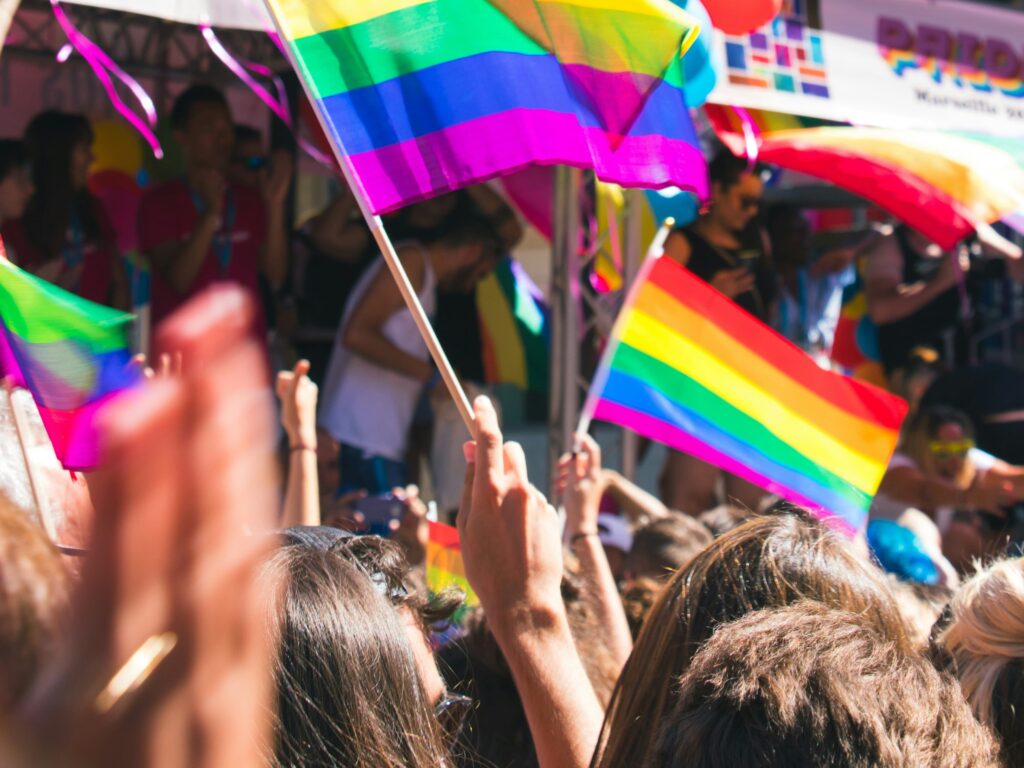In the tumultuous landscape of the Yugoslav Wars, amidst the chaos and brutality, another lesser-known narrative emerges — the plight of LGBT individuals who found themselves doubly marginalized and persecuted in the midst of conflict. While the wars in the former Yugoslavia have been extensively documented, the experiences of LGBT people remain largely overlooked, their stories buried beneath the rubble of history. Yet, their struggle for survival and their fight for recognition and rights amidst the horrors of war deserve recognition and remembrance.

During the 1990s, as Yugoslavia descended into a series of bloody conflicts marked by ethnic cleansing and widespread violence, LGBT individuals faced persecution on multiple fronts. In the hyper-masculine and conservative societies of the Balkans, where traditional gender roles were deeply entrenched, homosexuality was often viewed as taboo, deviant, and immoral. As such, LGBT people were not only targeted by nationalist forces seeking to purge their perceived enemies but also ostracized and stigmatized by their own communities.
The war unleashed a wave of hyper-nationalism and toxic masculinity that further exacerbated the marginalization of LGBT individuals. In this volatile environment, where identity was weaponized and difference was demonized, LGBT people became convenient scapegoats, symbols of moral decay and cultural contamination. They were subjected to harassment, violence, and discrimination, forced to conceal their identities and live in fear of discovery.
For many LGBT people, the struggle for survival meant hiding in the shadows, camouflaging their true selves behind a facade of conformity. They navigated a perilous landscape where exposure could mean death or persecution, where intimacy was a luxury and love was a risk. In the face of unimaginable adversity, they forged hidden networks of solidarity and support, finding refuge in the company of fellow outcasts and allies.
However, amidst the darkness, there were also moments of resilience and resistance. Despite the pervasive climate of fear, LGBT individuals dared to assert their humanity, to reclaim their dignity, and to demand recognition and rights. In the midst of chaos, they organized clandestine gatherings, created underground publications, and formed advocacy groups, defying the forces of hatred and intolerance.
Their struggle for visibility and acceptance continued long after the guns fell silent. In the turbulent aftermath of war, as the region grappled with the legacy of conflict and the challenges of transition, LGBT activists emerged as voices of courage and conscience, advocating for equality, justice, and inclusion. They fought against discrimination in all its forms, challenging societal norms and pushing for legal reforms to protect the rights of LGBT individuals.
Yet, the road to equality remains long and arduous. In many parts of the former Yugoslavia, LGBT people still face entrenched prejudice, social stigma, and legal barriers to full inclusion and participation. The struggle for acceptance is ongoing, a testament to the resilience and determination of those who refuse to be silenced or sidelined.
As we reflect on the legacy of the Yugoslav Wars, let us not forget the voices and experiences of those who have been marginalized and forgotten. Let us honor the courage and resilience of LGBT individuals who dared to love in a time of hate, who dared to hope in a time of despair. Their stories remind us of the enduring power of the human spirit and the imperative of solidarity in the face of adversity. In their struggle, we find inspiration, and in their resilience, we find hope for a more just and inclusive future.